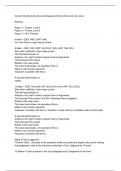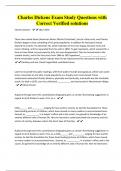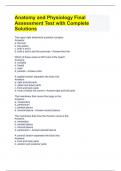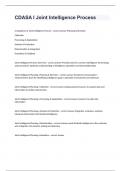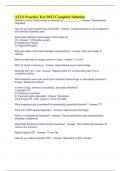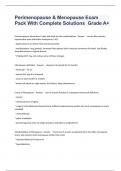Edexcel:
Paper 1 = Theme 1 and 4
Paper 2 = Theme 2 and 2
Paper 3 = All 4 Themes
4 Mark = {DEF 1KN 2 APP 1AN}
You can throw it a app that you know
8 Mark = {DEF 1KN 1APP 1AN 1EV} {1KN 1APP 1AN 1EV}
Start with a definition, then make a point
The first factor/reason is
Analyse a bit, start to build a logical chain of arguments
This because/This means
Relate to the case study
The case study states, an example of this is
Make a mini counter argument
However/ A problem with this is
A second factor/reason is
repeat
10 Mark = {DEF 1KN 2AN 1AP 1EV} {1KN 1AN 1APP 1EV} {1EV}
Start with a definition, then make a point
The first factor/reason is
Analyse a bit, start to build a logical chain of arguments
This because/This means/ 2nd AN = Business theory suggests
Relate to the case study
The case study states, an example of this is
Make a mini counter argument
However/ A problem with this is / therefore it could result in (A problem with the first point)
A second factor/reason is
Analyse a bit, start to build a logical chain of arguments
This because/This means
Relate to the case study
The case study states, an example of this is
Make a mini counter argument
However/ A problem with this is
Make a Final Judgement
“Overall i think…(Go back to the question) make your point and explain why you're making
that judgement, refer to the business context/ap = One Judgment for 10 mark
12 Marker = Extra analysis in the 2nd paragraph and 2 judgments in the conc
,20 Marker = def, benefits App, Weaknesses App, Overall
Def, Benefits App, Weaknesses App, Overall
Overall 3 judgments, 2 MOPS, however it depends on EvEv
Market:
What is the market share of the company?
Is the business new to the market?
Is this an established market with a new entrant?
Is this market an emerging economy?
Is this a saturated market?
What is the total market size?
Is this a domestic or international market?
Can Porter’s 5 forces be applied to this market?
Who are the main competitors in this market?
Economy?
Crowded market?
Objectives:
What are the social objectives of this business?
What is the reputation of this business?
Are the ethical objectives sound in this business?
Is the main objective of this business to maximise profits?
Is the main objective of this business growth, and is that internal or external (through
mergers and takeovers, joint ventures and strategic alliances)?
What quality issues might stop the business from achieving its objectives?
Growth, Sales, Profit?
Product:
Is there an innovative design in this product?
Is there any conflict between the quality of the product and the profit objectives?
Is this a new or existing product?
Does this product require scarce resources?
Are there any other products already on the market that are similar?
Where is the product in its lifecycle?
Is the product a cash cow, question mark, star or dog?
Is X product a good sell?
Situation:
Does the business have a sound plan?
Does the business have any financial problems?
Does the business have any supplier issues?
What are possible solutions to their current problems?
Does the business have any current employee problems? E.g. strikes
Is this a business in crisis?
Does this business have areas that it needs to improve?
New Entrant?
Overall Judgement = talk about factors
,Context
Cause to Effect
Weighting
Balance
Conclusion that solves or recommends
For econ questions talk more about the economy than the subject
A buisness plan outlines the main aspects and purpose of a buisness such as thr firms
financial forecasts.
Useful when o training finance = show the bank your plan
Shows cash flow forecasts
Expenses and ability to pay debts
However may not be needed because they're a start up and down have many financial
forecasts
Hybrid Working = flexibility for employees but proximity bias (bosses prefer those they seem
more in person). How do define performance at home
Wages spiral = only if wages are above inflation
Supply side inflation = oil gas food
Stop spending = stimulus from covid = pent up demand = firm price increase ev can't
continue for long
Weaker exchange rate = Improved inflation
Labour Shortages = forces prices up to pay higher wages
Time lags
Thatcher sold off all the council houses
MPc = overturned
Poor harvests = Spain and Morocco have a shortage of out of season produce which
increases prices
Forecasts are near perfect = geopolitics affects stuff
Uks recovery from 2020 recession wasn't fast enough to bring up back to precovid levels
Brexit = EU rich part of the world and we've made trade harder with them which is making it
harder for the economy to grow
,Brexit reduced investment by 29milloin
Hospitality,agriculture and care sectors struggle to find staff forcing wages up = temporary
though
Young people chosen to study instead of work
Early retirements
Long term sickness benefirsx
Dynamic markets make it difficult to forecast sales
Workbook 2: Meeting Customer Needs (Theme 1)
A business is a company or firm that aims to make a profit. They usually build a product and
sell it to consumers generating revenue and contributing to the local economy. Businesses
usually focus on gaining larger returns than what they put into the company or the building of
a product.
Good = Physical product sold to a consumer for currency
Service = An intangible item/product
Product = a general term that includes goods and services
Objective = A Medium to long term goal established to coordinate a business
Profit = Reward for risks and sales revenue generated that was more than the total costs of
the operation and it is the main focus for a business.
Sales Revenue/Turnover = Are earnings or income generated by the products that
consumers buy from a business
Opportunity Costs = The measure of the value of the next best alternative forgone.
A market is any medium in which buyers and sellers interact and agree to trade at a given
price. 'Medium' is used to describe the market due to its many forms such as
virtual/electronic markets of Amazon and Ebay or Face to face markets. The activity within a
market is a way of determining the price a consumer pays and the revenue a business
earns.
Size of markets = number of buyers which forces firms to enter the market and sell due to a
profit motive
,Mass markets = is where a business sells into the largest part of the market, and where
there are many similar products and close competitors = high conp. A mass market is a
very large market with a high sales volume. Mass marketing occurs when a standardised
product is aimed at the largest groups of consumers for the particular good or service.
In a mass market:
- Customers are the majority
- Needs and wants are more general and less specific
- Higher production capacity and output which means firms can benefit from
economies of scale (cost advantage when production is efficient, increased
production and lowered costs, bulk buy and bulk sell to reduce sale/buy price)
- Success in a mass market is dependent on low costs, efficiency in operations and
market leading brands
Mass Market Objectives:
● Universal Product
● Leadership of the largest market segment
● Strong brands for a variety of products (unilever)
● Exploit economies of scale to earn high profits
Mass markets are affordable cheap to the average consumer products that are for everyday
usage to be targeted at a large amount of consumers in order to generate a high sales
revenue and outputting product to on a large scale to benefit from economies of scale and
capital machinery to speed-up the production process as well as having good trained
workers and low unit costs.
Benefits of Mass Market:
- Maximise profits through large opportunities 4 sales
- Brand recognition and development through the mass consumers
- Widely available and accessible products for everyday usage
- Widest consumers base
- Lower risk as resources are targeted to the largest part of the market
- Market research costs are cheap and accessible due to it already existing from
other companies
- Low unit cost of production due to benefiting from economies of scale
- Mass markets provide opportunity for expansion
Disadvantages of Mass Markets:
- Vast amounts of competition
- Price competing which leads to undercutting and lower profit margins = price wars
- High promo costs reduces profitability
- The digital economy has led to a decline in Mass markets
- Low adaptability
- High entry barriers
- Low switching costs so consumer will always switch to what's cheaper to
maximise their welfare
- No personalization or unique products / service
, Niche Markets = is a small part of the overall market that has the characteristics of being
more luxury and limited. Niche marketing is when a business sells into small segments
where the consumers' needs and wants are more specific and narrow than in a mass
market. It's a small share of the market where consumers can easily segmented and prices
often have premium attached to them.
Benefits of Niche Markets:
- Less completion
- Clear focus, goal and target audience
- Specialist knowledge and skills due to the narrowed market
- Charge a higher price (Premium)
- Consumer loyalty is more easily achieved due to repeated purchases
- Higher profit margins
- More flexible for firms as the market is smaller and can respond to changes in it
better.
Disadvantages of Niche Markets:
- No opportunity for expansion
- Small scale so it is vulnerable to macroeconomic downturn
- Changes in consumer taste and preference can have a large effect on profitability
- Lack of ecos of scale no cost advantage makes production more expensive
- Dependant on Niche profits that doesn't attract the attention of the masses
- No diversification
- Lack of availability due to Niche products being limited in supply
- High market research costs due to it being most primary and qualitative as no
other firm has previously done the research
Business growth = The continued expansion and increase of an enterprises sales revenue
profit and accessibility of new sectors and areas.
Board Markets = Reach as many people as possible in order to increases sales
The process of segmentation may also lead to an increase in market share as tailoring new
products to specific types of consumers can increase the net rate of purchasing. Consumers
can be segmented through many ways for example income and age, this helps firms cater to
the consumers preference.
Inelastic = Things relatively stay the same = not flexible = Unresponsive to changes =
people will buy no matter what
Elastic = Responsive to changes, things relatively change more than, people may not
buy
Market Size = Indicates the potential sales for a firm and is measured in volume (units) or
value (sales), size helps firm segmented consumers and market size is an external factor
that business can not influence or alter.


